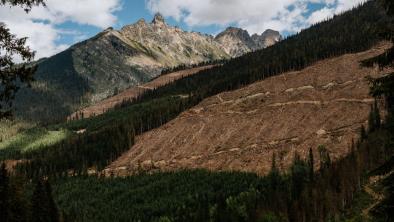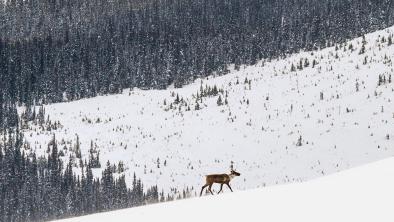Wilderness Committee Asks Provincial Committee on Aquaculture to Close BC Salmon Farms
by WCWC Media
Tuesday October 17, 2006 at 05:28 PM
Research leaves no doubt that salmon farming is unsustainable
Sechelt, BC. – The Wilderness Committee appeared in front of the BC provincial government’s Special Committee on Sustainable Aquaculture at a public hearing today to call on the BC government to protect BC’s wild pacific salmon and marine life by shutting down all open-net cage salmon farms and phasing out salmon farming within the next three years.
Over the last 26 years the Wilderness Committee has worked to protect Canada’s biodiversity, including wild salmon. The Wilderness Committee first asked for salmon farming closures to protect wild salmon in 1998 during the provincial NDP government’s moratorium on new salmon farms that was set in 1995, but lifted in 2002 by the provincial Liberal government.
On February 20, 2006, the BC Legislative Assembly put forward a Special Committee on Sustainable Aquaculture to gather information and make recommendations with respect to sustainable aquaculture in British Columbia. This special committee was to consider the economic and environmental impacts of the aquaculture industry in BC.
“Salmon farms hurt our wild salmon and marine life through lethal sea lice infestations, parasite and disease outbreaks, pollution through sewage, drug and chemical contamination, and predation and colonization by escaped farmed Atlantic salmon,” claims Geoff Senichenko, Wilderness Committee Director of Research.
The Wilderness Committee’s submission also calls into question the sustainability of “closed containment” salmon farming and asks that salmon farming in any form be phased out completely.
“Salmon are carnivores – farming them is like farming tigers. It takes 2 to 8 kilograms of wild fish to raise one kilogram of farmed salmon, which is causing a global net loss of protein. It is not an efficient or sustainable use of the world’s wild fish and protein,” said Senichenko.
The Wilderness Committee is demanding action by both the provincial and federal government to close down salmon farms immediately and to find other more sustainable alternatives to salmon farming, such as those that have been practiced with herbivorous fish in closed systems in Asia for thousands of years.
-30-
For more information contact:
Geoff Senichenko, BSc Ecology, Director of Research and Mapping 604-740-0006 (or 604-683-8220)
Visit
http://www.wildernesscommittee.org/campaigns/marine/policy/fish_farms

